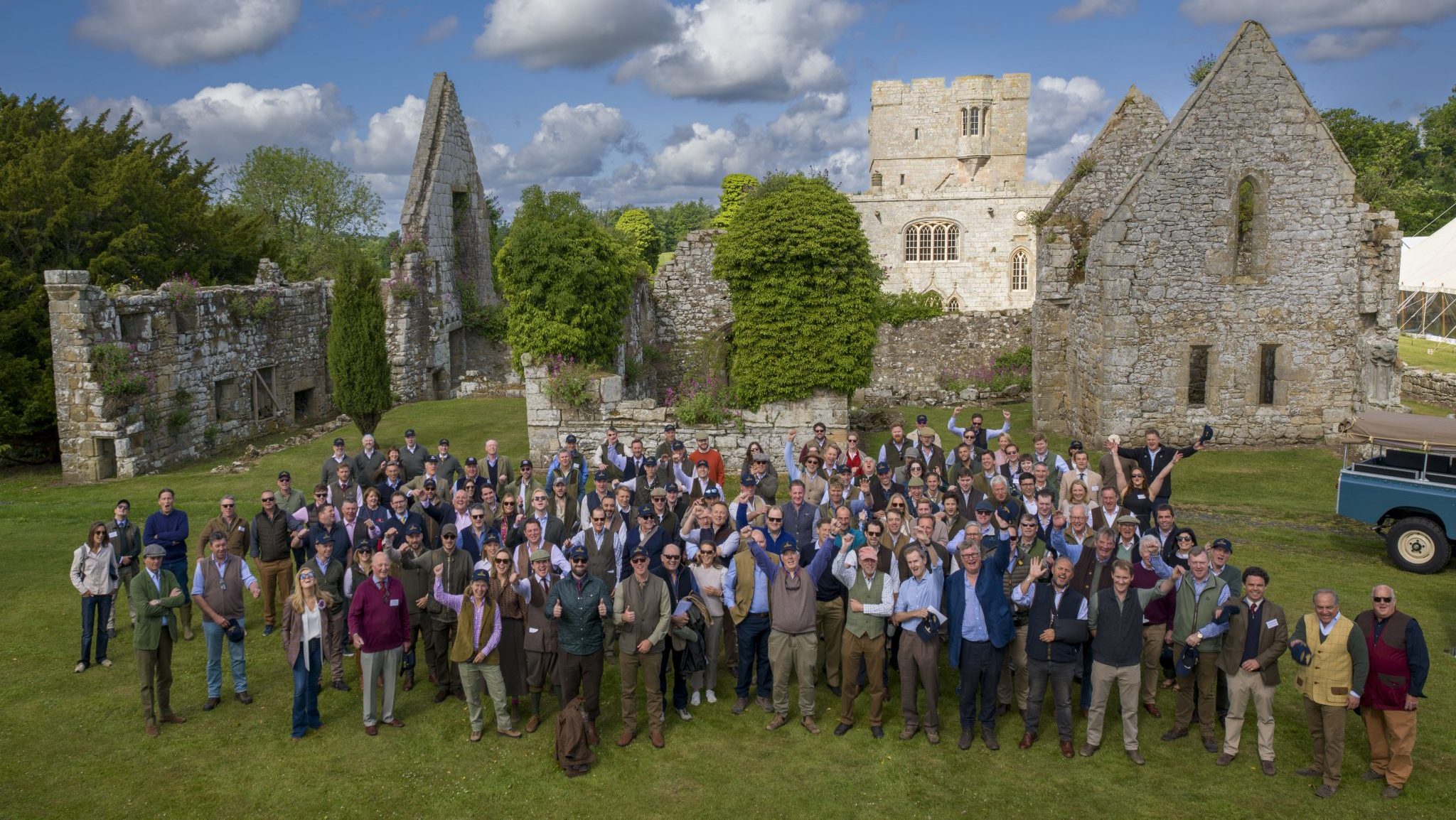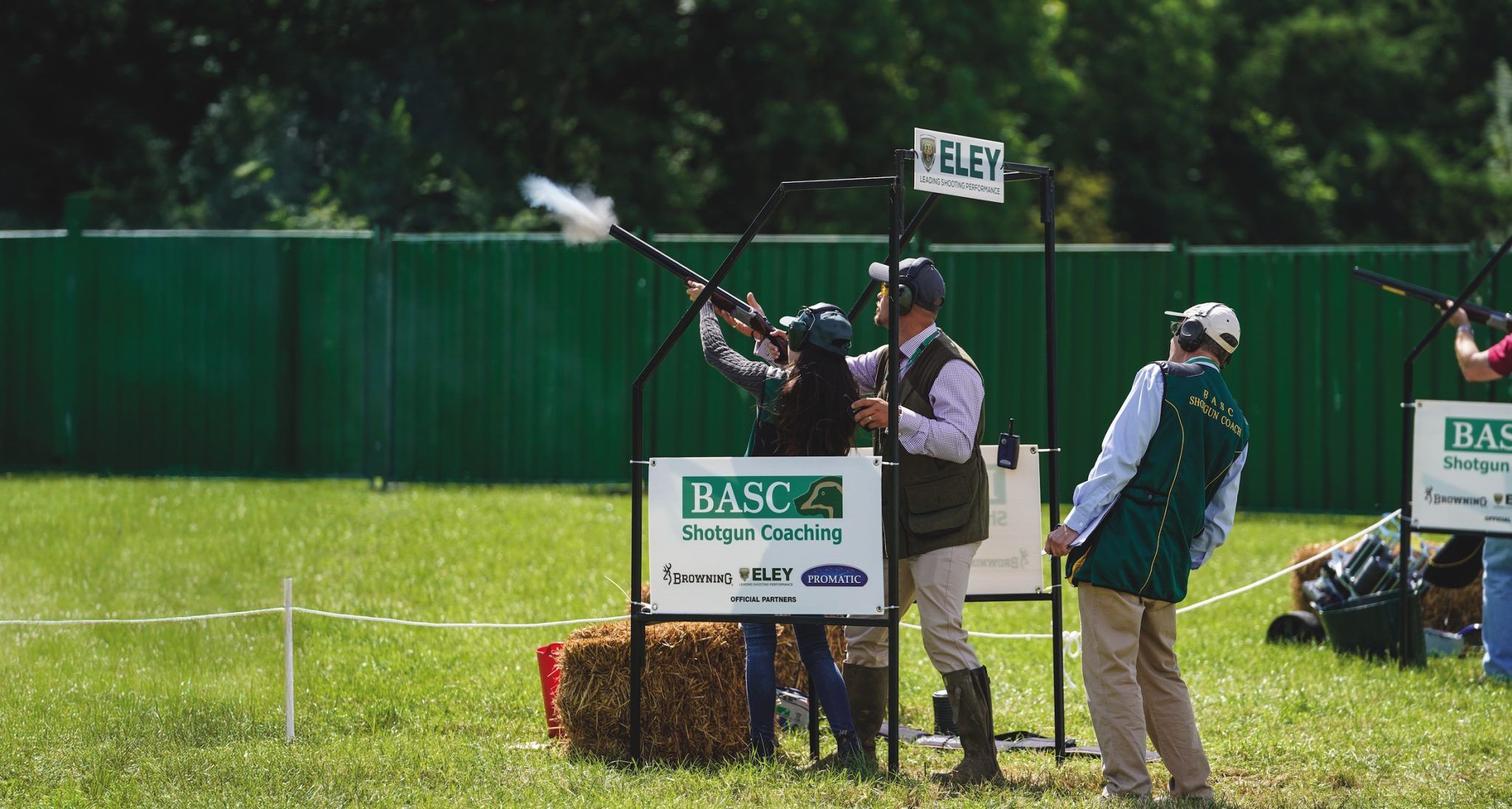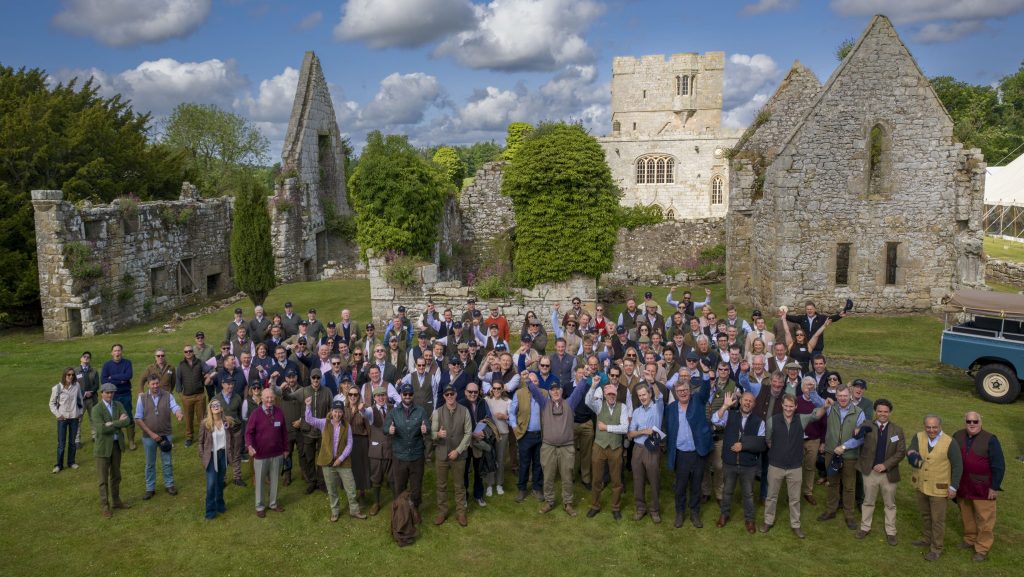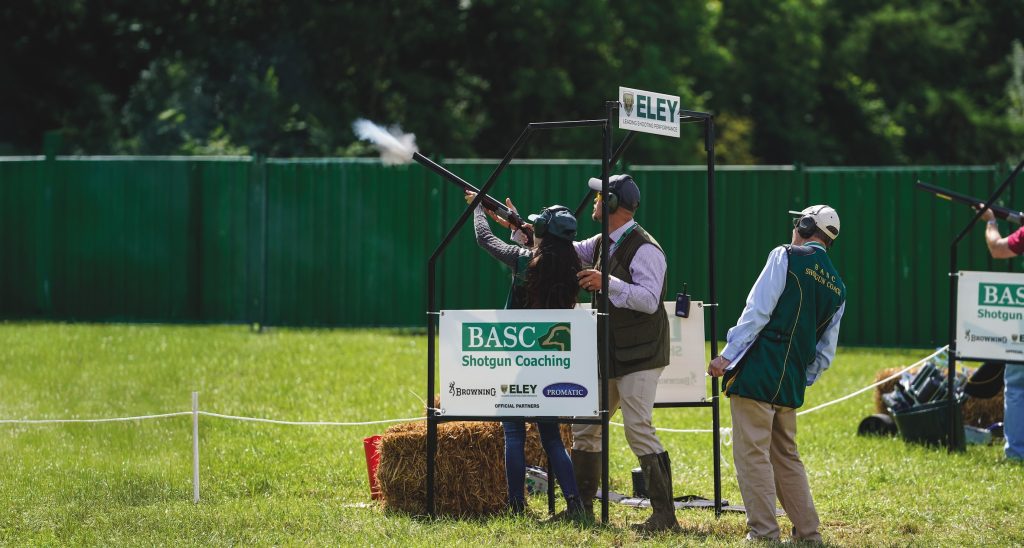News
Best practice: how to stop government encroachment on our sport
Would you like to speak to our readers? We offer sponsored articles and advertising to put you in front of our audience. Find out more.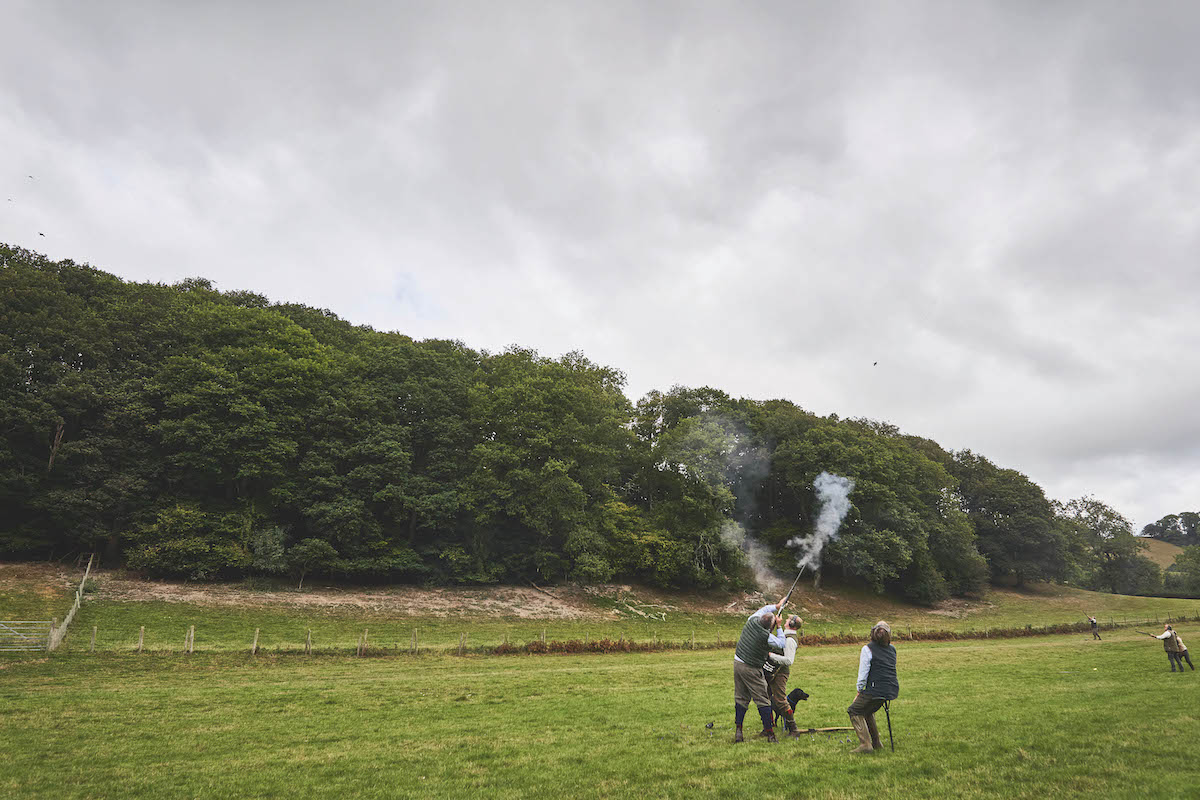 Matt King with loader Andy Garrod and Sarah Chantler on Coed Tafyll.
Matt King with loader Andy Garrod and Sarah Chantler on Coed Tafyll.
We all know that game management activities are beneficial to the wider environment. That fact has been proved time and time again by research by the GWCT and others. In fact the supporting documents that formed part of the Natural Resources Wales (NRW) consultation to look at the licensing of the release of game birds recently stated that game management can be beneficial to the wider environment and wildlife.
But sitting on the other side of the fence is a key skill when you are looking at your own sector. Can we really prove that game management is beneficial? In part, yes. We have some excellent research that stretches back from the 1980s right through to the present day. However, shooting is a broad spectrum and not all shoots undertake the same level of conservation work as others. Some put more birds down, others are wild bird shoots. So it is hard to get everything to fit nicely into the same category.
Through its agency NRW, the Welsh Labour government is trying to fundamentally change the way game shooting is operated in Wales by trying to license the release of game birds. That would leave the shooting community at the whim of civil servants and politicians who are openly hostile to game shooting.
Judy James, the Welsh Minister for Climate Change, has showed that she doesn’t like shooting and will do what she can to stop it. If a licensing regime is put in place in Wales we will be in a difficult position, even if we get guarantees that changes won’t be made that would work against shooting.
The proof of that comes from Natural England. The release of gamebirds (pheasants and red-legged partridge) and their potential impact on European Protected Sites (EPS) in England was subject to a legal challenge in 2021. Legal proceedings were brought due to a lack of information or assessments by the relevant government agency, rather than any specific evidence. Following the challenge, the government proposed an interim licensing regime, alongside a prohibition on release of gamebirds on or within 500m of an EPS.
The National Gamekeepers’ Organisation and others helped to negotiate a workable interim regime and annual General Licence. GL43 was introduced in 2021 and renewed in 2022 with little change. It permits the release of game birds on and within 500m of EPS, up to certain density figures, provided other aspects such as relevant consents are in place.
However, in May 2023 Natural England informed stakeholders that as of 31 May 2023 GL43 would see significant changes and some areas would require an individual licence to release game birds.
This is a prime example of the government agencies doing what they promised they would not, changing the rules at the very last minute and putting jobs, homes and businesses at risk. As we all know, shoots of all sizes plan their season in the very late winter and to have the goal posts fundamentally changed at the eleventh hour is simply not acceptable, let alone workable. So in short, licensing the release of game birds is not suitable. But what should we as a sector do to try and head off things like this?
The key is going to be self-regulation of our own sector. We are actually pretty good at things like this. Shoots do tend to stick to the rules, but the key is showing the outside world, politicians and our detractors that we are doing what we say we are.
What does self-regulation look like? Most of us know of the British Game Assurance scheme, which was set up to promote and develop the consumption of game meat by creating a thriving game meat market, underpinned by independent assurance from egg to plate. The idea is to get more game on the market for people to eat and give the supermarkets the confidence that that game has been produced to the best possible standards, as proved by an audit process. Many of the larger shoots have taken up the scheme and we need to encourage it to grow as we move forward. It is the perfect way to show people from government and outside our sector that we are doing things to the gold standard and that we are taking proper measures and have accountability.
However, this type of assurance is not for all shoots. Some of the more modest might not need or want to have the full audit and responsibilities that go with it as they might not be selling game to a dealer. There is another option for those shoots – Trusted Game. Developed by game bird vets working in partnership with their gamekeeper and game farming clients through 2021, and incorporating tried-and-tested systems from other industries, the Trusted Game project provides a route to achieving high standards through a simple auditing process undertaken by your game bird vet. This will provide peace of mind to those shooting and all others involved, including consumers and government officials.
Making sure that your shoot is a member of one of these schemes is going to be so important to protecting our sport in the next two years. Government are going to be looking at compliance with the legal requirements that are upon us, and one of the very best ways to prove that we are doing what we should is to be a member of one of these schemes. There is little excuse, as the cost of joining Trusted Game, for example, is usually less than a good meal out in the pub.
Even if your shoot is a very small DIY affair, you can do your bit by making sure you stick to the legal requirements. You must be on the poultry register if you are releasing more than 50 birds and you also have a requirement to have a vet. We can all do our bit to keep shooting as we know it; we all need to stand up and be counted.
Related articles
News
Duke's Challenge raises record-breaking £685,000 for GWCT
The shooting community has backed wildlife conservation in spectacular fashion, raising a record-breaking £685,000 for wildlife conservation
By Time Well Spent
News
‘So what exactly do you lot do, then?’
You’d be surprised how many projects staff and volunteers deliver, as well as BASC’s vital work helping members, says Conor O’Gorman
By Time Well Spent
Manage Consent
To provide the best experiences, we use technologies like cookies to store and/or access device information. Consenting to these technologies will allow us to process data such as browsing behavior or unique IDs on this site. Not consenting or withdrawing consent, may adversely affect certain features and functions.
Functional Always active
The technical storage or access is strictly necessary for the legitimate purpose of enabling the use of a specific service explicitly requested by the subscriber or user, or for the sole purpose of carrying out the transmission of a communication over an electronic communications network.
Preferences
The technical storage or access is necessary for the legitimate purpose of storing preferences that are not requested by the subscriber or user.
Statistics
The technical storage or access that is used exclusively for statistical purposes.
The technical storage or access that is used exclusively for anonymous statistical purposes. Without a subpoena, voluntary compliance on the part of your Internet Service Provider, or additional records from a third party, information stored or retrieved for this purpose alone cannot usually be used to identify you.
Marketing
The technical storage or access is required to create user profiles to send advertising, or to track the user on a website or across several websites for similar marketing purposes.

